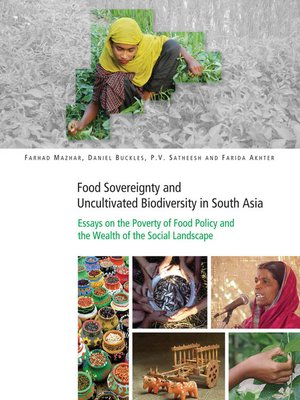Food Sovereignty and Uncultivated Biodiversity in South Asia
ebook ∣ Essays on the Poverty of Food Policy and the Wealth of the Social Landscape
By Farhad Mazhar

Sign up to save your library
With an OverDrive account, you can save your favorite libraries for at-a-glance information about availability. Find out more about OverDrive accounts.
Find this title in Libby, the library reading app by OverDrive.



Search for a digital library with this title
Title found at these libraries:
| Library Name | Distance |
|---|---|
| Loading... |
Note: CD-ROM/DVD and other supplementary materials are not included.
This publication explores the meaning of agriculture and guides the reader into new territory, where food, ecology, and culture converge. In the food systems of South Asia, the margin between cultivated and uncultivated biodiversity dissolves through women's day-to-day practice of collecting and cooking food, constituting a feminine landscape. The authors bring this practice to light, and demonstrate the value of food production and consumption systems that are localized rather than globalized. Based on extensive field research in India and Bangladesh, with and by farming communities, the book offers both people-based and evidence-based perspectives on the value of ecological farming, the survival strategies of the very poor, and the ongoing contribution of biodiversity to livelihoods. It also introduces new concepts such as "the social landscape" and "the ethical relations underlying production systems" relevant to key debates concerning the cultural politics of food sovereignty, land tenure, and the economics of food systems. The authors are leading activists and accomplished researchers with a long history of engagement with farming communities and the peasant world in South Asia and elsewhere. The print edition of this publication includes a DVD entitled Diversity and Food Sovereignty, which presents three farmer-made films. Their message is loud and clear: food sovereignty means the conservation of biological diversity and revitalization of ethical community relations.







